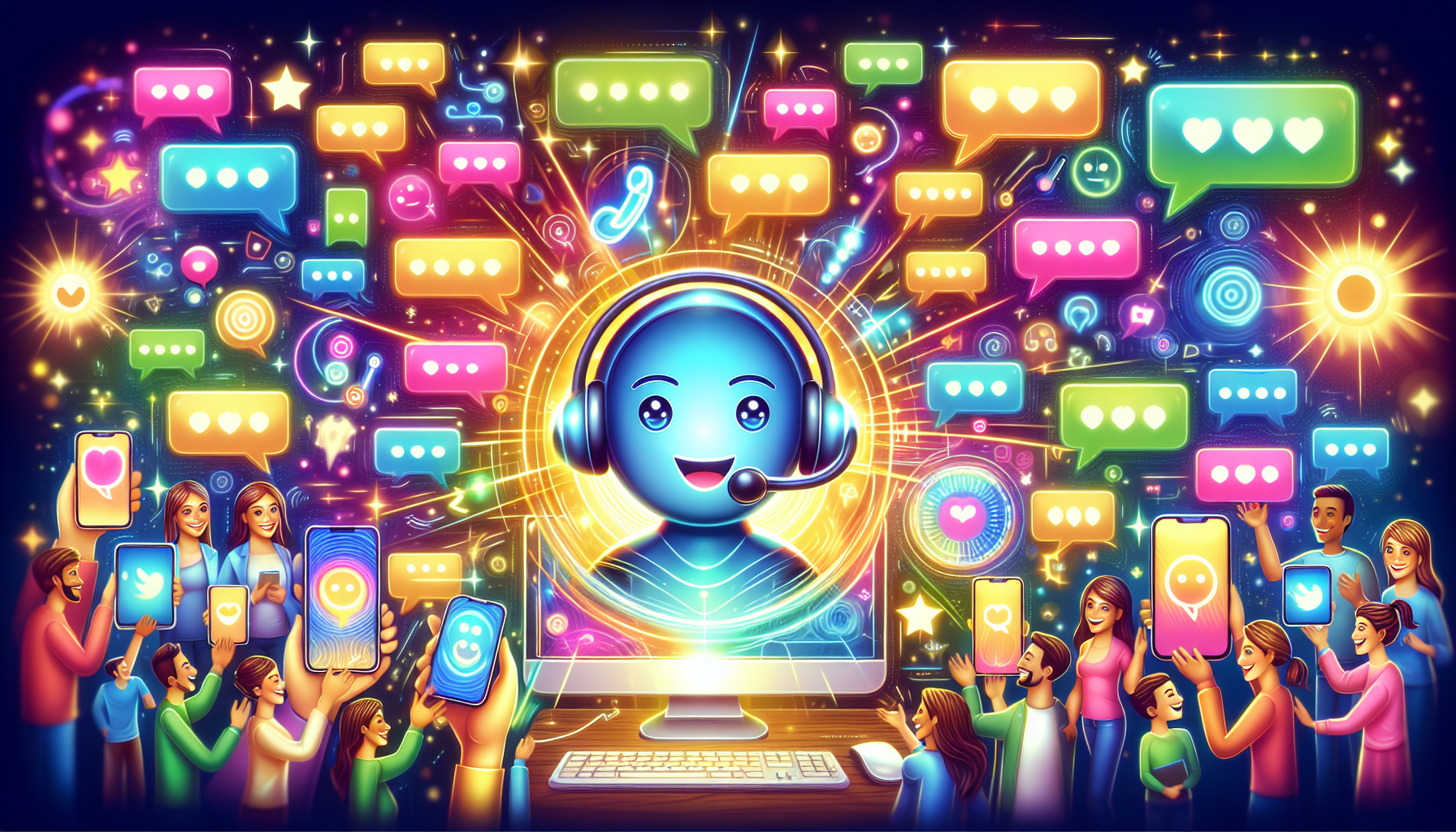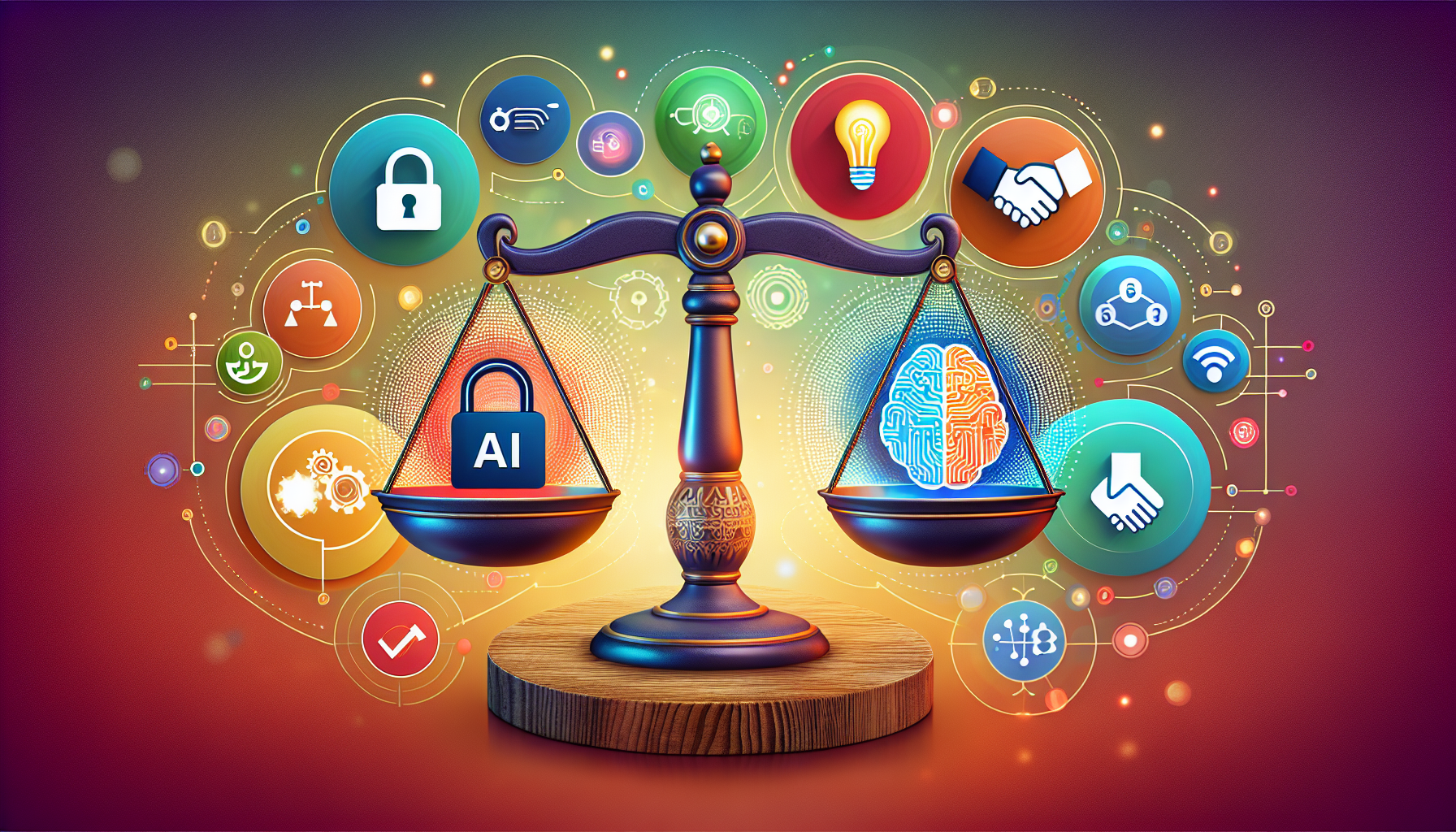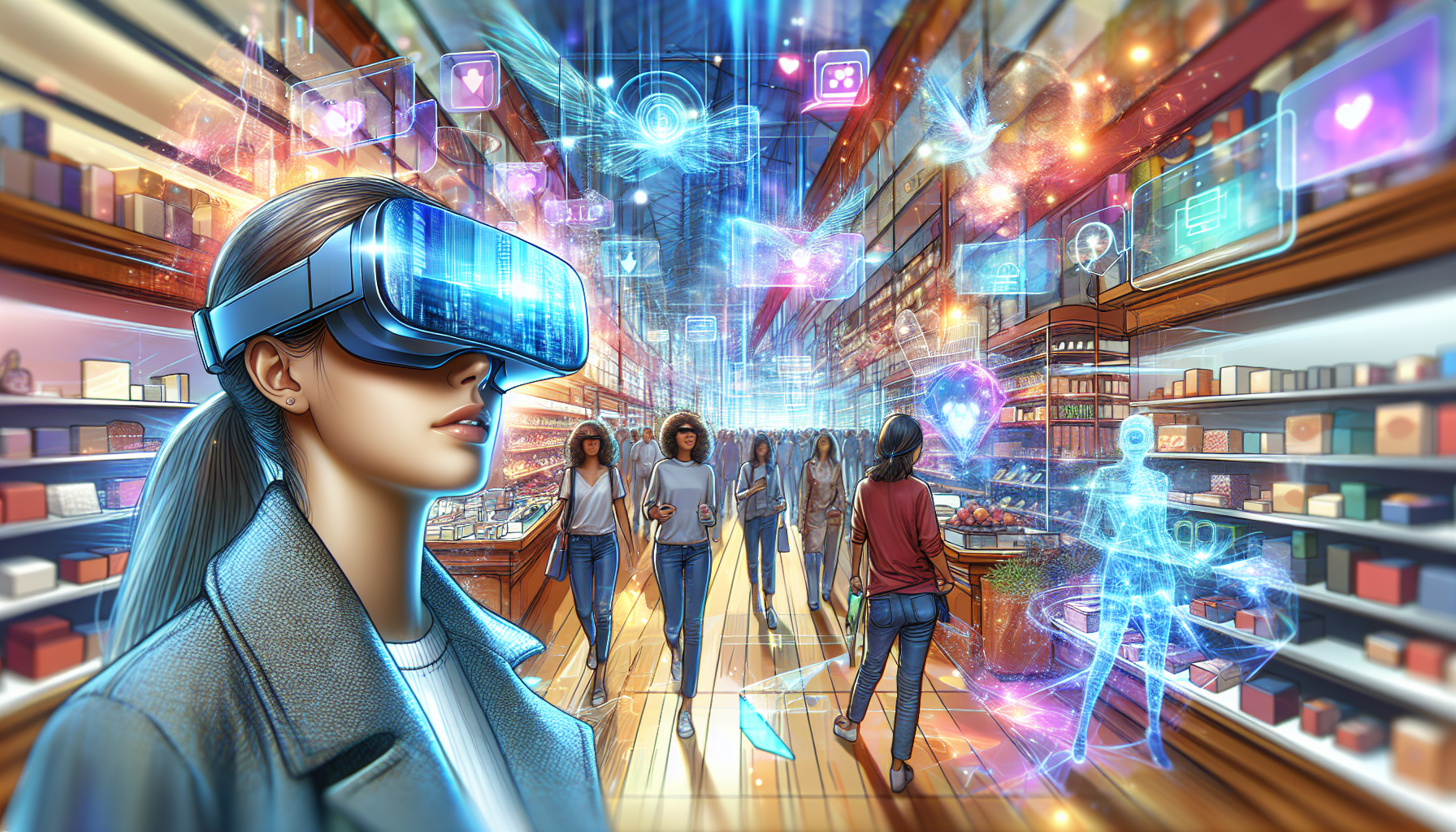Wondering how AI will impact marketing in 2025? This article delves into the top ai in marketing trends for 2025, including predictive analytics and hyper-personalization, to keep your strategies cutting-edge.
Key Takeaways
-
AI’s enhanced predictive analytics are transforming marketing strategies by enabling data-driven decisions and personalized customer engagement.
-
Generative AI tools are revolutionizing content creation, allowing marketers to produce engaging materials quickly and consistently across platforms.
-
The combination of AI and augmented reality is creating immersive customer experiences that enhance engagement and drive informed purchasing decisions.
Enhanced Predictive Analytics for Marketing Strategies
Predictive analytics is revolutionizing marketing strategies. AI analyzes extensive historical data, enabling marketers to forecast consumer behavior and marketing trends with remarkable accuracy. This transformation allows marketing leaders to allocate resources, fine-tune tactics, and develop actionable insights effectively.
Predicting both broad trends and nuanced shifts in consumer preferences is now possible. AI’s advanced predictive models enable marketers to engage customers proactively, resulting in more personalized and effective marketing efforts that boost customer retention and lifetime value.
AI’s real-time data analytics enable immediate adjustments to marketing strategies based on current consumer behavior patterns. This dynamic approach keeps marketing campaigns relevant and impactful, adapting swiftly to market trends. Integrating AI in marketing strategies empowers teams to make data-driven decisions that enhance performance, aligning with emerging ai marketing trends.
AI-powered predictive analytics is a strategic asset for marketing specialists, enabling them to stay ahead of the curve and deliver personalized experiences that resonate deeply with target audiences.
Generative AI Tools Revolutionizing Content Creation

The world of content creation is undergoing a seismic shift thanks to generative AI tools. These tools, including DALL-E 3 and GPT-3, are enabling marketers to create content at an unprecedented speed. Whether it’s text, images, or videos, AI-generated content is becoming the backbone of modern marketing strategies.
Generative AI excels in creating fast and highly relevant content for target audiences. Effective prompt engineering allows marketers to guide AI tools to produce content that aligns with their brand voice and messaging, ensuring it resonates with the audience and drives higher engagement and conversion rates.
Generative AI is revolutionizing content marketing by enabling marketers to produce diverse content types across multiple platforms. From social media posts to in-depth articles, AI helps maintain a consistent and impactful online presence. The efficiency of AI-generated content allows marketing professionals to focus more on strategic planning and less on time-consuming content creation.
Leveraging AI for content creation goes beyond speed and efficiency; it’s about creating content that truly connects with the audience, driving meaningful interactions and fostering brand loyalty.
The Rise of Hyper-Personalization in Customer Engagement
Hyper-personalization represents the new frontier in customer engagement, with AI driving this transformation. By analyzing vast amounts of customer data, AI delivers highly personalized interactions that feel intuitive, significantly enhancing customer satisfaction and loyalty as customers feel understood and valued by the brands they interact with.
Real-time data analytics are crucial for hyper-personalization, enabling brands to engage customers with timely and relevant content. Companies like Netflix and Amazon set the gold standard in this area, using AI to recommend content and products that align closely with individual preferences, boosting engagement and conversion rates.
Achieving true hyper-personalization requires balancing AI automation with human input. While AI analyzes customer behavior and predicts preferences with high accuracy, human oversight ensures interactions remain genuine and empathetic. This combination is vital for building lasting customer relationships.
Hyper-personalization is revolutionizing customer engagement by making interactions more meaningful and relevant. As AI evolves, its ability to deliver personalized experiences will become more sophisticated, setting new benchmarks for customer satisfaction.
Conversational AI and Virtual Assistants Redefining Customer Experience

Conversational AI and virtual assistants are redefining how brands interact with their customers. The market for conversational AI is booming, with projections indicating it will reach $32 billion by 2030. This growth is driven by the increasing adoption of AI-powered chatbots and virtual assistants that enhance customer engagement and satisfaction.
A key advantage of conversational AI is its ability to provide proactive support, significantly boosting user satisfaction. For instance, 72% of users who received proactive support from AI reported higher satisfaction levels. This approach allows brands to address customer needs promptly, enhancing the overall customer experience.
Voice assistants are becoming a staple in customer interactions, with 82% of companies utilizing them to enhance engagement. These AI-driven tools handle various tasks, from answering queries to providing personalized recommendations, making them invaluable in modern marketing operations.
As AI evolves, its role in managing customer experiences will become increasingly autonomous, optimizing interactions without human intervention. This shift towards AI-driven customer experience management promises to reduce costs and improve efficiency, benefiting both brands and consumers.
Ethical AI Becoming a Key Priority in Marketing Operations

As AI becomes more integrated into marketing operations, ethical considerations are taking center stage. Ensuring transparency, fairness, and data privacy in AI applications has become a critical priority for marketing leaders. Growing awareness of AI’s ethical issues is making these discussions more prevalent among stakeholders.
Regulations like the EU AI Act are setting global standards for ethical AI, emphasizing safety and fundamental rights. Addressing biases in AI systems is crucial to avoid negative impacts on brand reputation and sales performance. Ethical guidelines often cover key issues such as data privacy, transparency, and bias avoidance, essential for responsible AI usage.
The implementation of formalized AI ethics is becoming increasingly common, with organizations establishing roles like compliance and ethics officers to oversee AI applications. These roles are vital in ensuring AI-generated content is accurate, relevant, and free from biases. Human oversight remains essential in maintaining the quality and integrity of AI-driven marketing efforts.
The ethical application of AI in marketing is not just a regulatory requirement but a strategic imperative. Prioritizing ethical practices allows brands to build trust with customers and ensure the long-term success of their AI initiatives.
The Impact of AI on Marketing Jobs and Team Dynamics
Integrating AI into marketing is reshaping team dynamics and job roles. Marketing teams are becoming more agile and focused as AI takes over routine and manual tasks. This shift allows professionals to concentrate on strategic and creative aspects of their work, enhancing overall productivity.
Technological proficiency and data literacy are becoming essential skills for marketers in AI-enhanced environments. Professionals who can manage AI tools and platforms will be critical for the success of future marketing campaigns. This demand for new skills is leading to the emergence of roles focused on data analysis and customer experience design.
Despite the increasing role of AI, creativity and innovation remain indispensable in marketing. AI can handle data-driven tasks, but the human touch is crucial for crafting compelling narratives and innovative strategies. The balance between AI automation and human creativity will define the future of marketing teams.
AI is not replacing marketers but transforming their roles, enabling them to work smarter and more efficiently. Embracing AI allows marketing teams to unlock new levels of productivity and creativity, driving the success of their marketing efforts.
AI-Driven Voice Search Optimization Expanding in Digital Marketing
Voice search optimization is becoming a key component of digital marketing strategies, driven by advancements in AI technology. Natural language processing (NLP) is crucial for understanding user intent behind voice queries, allowing marketers to tailor their strategies. This capability is transforming how brands optimize content for voice search, focusing on long-tail keywords that best match voice queries.
AI tools can analyze vast amounts of voice search data to identify user behavior patterns, helping marketers create more relevant and engaging content. This process saves time and resources while enhancing brand visibility in search engines, driving organic search traffic.
As more consumers prefer using voice commands for their searches, integrating voice search optimization into digital marketing strategies is becoming crucial. AI’s ability to track and analyze performance metrics related to voice search enables marketers to refine their strategies for better outcomes. This trend is set to expand, making voice search optimization a critical aspect of digital marketing.
The rise of AI-driven voice search optimization is reshaping how brands approach digital marketing. Leveraging AI enables marketers to stay ahead of the curve, ensuring their content remains relevant and visible in an increasingly voice-driven search landscape.
Augmented Reality and AI Integration Enhancing Customer Experiences

Integrating artificial intelligence with augmented reality (AR) is taking customer experiences to new heights. This combination allows businesses to create immersive and personalized interactions that captivate customers. For instance, Google’s new shopping feature uses generative AI to offer virtual try-ons for clothes, providing a unique and engaging shopping experience.
AI-powered AR experiences enable customers to visualize products in their own space, such as generating images of furniture in their homes. This capability enhances the shopping experience and helps customers make informed purchasing decisions. AI virtual assistants further enhance these interactions by providing personalized recommendations and guidance throughout the shopping journey.
Consumer preferences are increasingly leaning towards retailers that offer AR experiences, with 61% indicating a preference for such features. This trend highlights the growing importance of integrating AI and AR to meet customer expectations and drive engagement.
The integration of AI and AR is revolutionizing customer experiences by making them more immersive and personalized. As these technologies evolve, they will play an increasingly vital role in shaping the future of customer engagement.
Summary
The AI marketing trends for 2025 are set to redefine how brands connect with their audiences. From enhanced predictive analytics and generative AI tools to hyper-personalization and conversational AI, these innovations are transforming marketing strategies and operations. Ethical considerations and the impact on marketing jobs further highlight the comprehensive influence of AI in this domain. As we move forward, embracing these trends will be crucial for marketing professionals to stay ahead and deliver exceptional customer experiences.
Want to dive into more 2025 business trends? View 2025 Business Trends Reports for more.
Frequently Asked Questions
How does predictive analytics enhance marketing strategies?
Predictive analytics enhances marketing strategies by enabling you to forecast consumer behavior more accurately, allowing for better decision-making and efficient resource allocation. Embrace these insights to elevate your marketing game!
What role do generative AI tools play in content creation?
Generative AI tools play a crucial role in content creation by allowing you to produce high-quality, unique content rapidly, which boosts your outreach efforts and supports better strategic planning. Embrace these tools to take your content to the next level!
How does hyper-personalization improve customer engagement?
Hyper-personalization boosts customer engagement by leveraging AI to tailor interactions based on individual behaviors, leading to higher satisfaction and loyalty. Embrace this approach to connect with your customers more deeply!
What is the significance of ethical AI in marketing operations?
Ethical AI is crucial in marketing operations as it fosters transparency and fairness, building customer trust and enhancing brand reputation. Embrace ethical practices to elevate your marketing strategy and make a positive impact!
How is AI reshaping marketing jobs and team dynamics?
AI is revolutionizing marketing by automating routine tasks, which empowers professionals to concentrate on strategy and creativity. Embrace this shift and explore new roles in data analysis and customer experience design to stay ahead!

 9 min read
9 min read





 5 min read
5 min read

